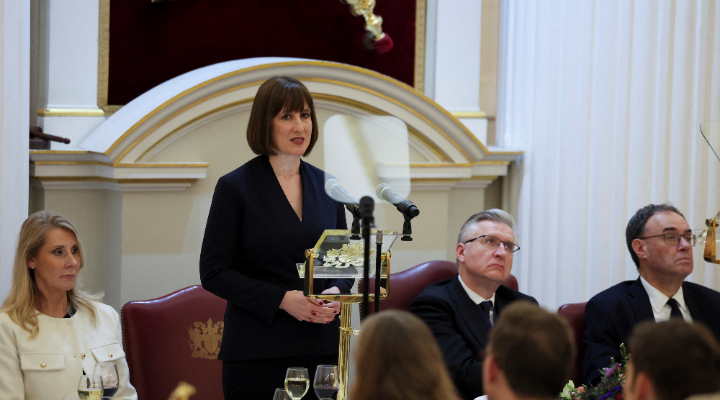
UK inflation is expected to have risen in October when figures for last month are released next Wednesday by the Office for National Statistics.
While it’s too soon to see the impact of Labour’s first Budget on inflation, financial markets are now pricing in the inflationary impact of higher government spending, borrowing and tax rises.
According to FactSet consensus, the headline Consumer Price Index rate is forecast to have nudged up last month to 2.2%, from 1.7% in September. This would move inflation back above the Bank of England’s official 2% target in what will be the penultimate inflation measurement of the year.
At the same time, core inflation—a measure that excludes more volatile energy, food and alcohol prices—is expected to have fallen to 3.1% in September, from 3.2% in the previous month, a declining trend that will encourage policymakers, even if headline inflation is rising once more.
The Budget, US Election and Bank of England
What has changed in the UK since the last inflation results? On Oct. 1, the Ofgem price cap was lifted for domestic energy prices, which will see gas and electricity bills rise again. This effect should be noticeable in next week’s October inflation data. The US election has also pushed the dollar higher, and markets are assuming the next Trump administration will have inflationary effects, though policies are yet unclear.
Globally, oil prices have softened by around 10% over the month, but spot natural gas prices have surged around 30%, a massive monthly move. What could be the impact on UK inflation? Petrol prices have fallen recently, and are significantly lower than in October 2023. But natural gas prices are around 14% higher than the same month last year.
Next week’s news will be the first inflation reading we get since the Oct. 30 Budget and Nov. 7 Bank of England meeting, where interest rates were cut from 5% to 4.75%. That was the second rate cut this year after a previous cut in August.
The Bank of England now forecasts that the Budget’s new fiscal measures will add 0.50 percentage points to CPI and boost GDP by 0.75 percentage points.
Even before the Budget measures, however, inflation was expected to rise again into 2025 because of tougher comparisons with 2023, after dropping below the 2% target in recent months.
2024 Wrapped: Inflation Down, Dollar Up
It’s been a big year for economists and inflation. UK CPI has fallen from 4% in January to a low of 1.7% in September, a trajectory that has encouraged the Bank of England to cut rates from the peak of 5.25%.
Inflation has been tamed globally but central bankers are still nervous. The Bank of England’s latest statement talked of “squeezing remaining inflationary pressures out of the economy”, a job that’s not yet done.
Globally, the picture is similar—in the US, inflation has just ticked up again, and in the eurozone CPI fell below target in September, before rising again in October.
The pound is trading at $1.27, where it was at the start of the year, despite a rally in September. The Trump election victory has turbocharged the dollar and wiped out the gains. Still, the pound is higher against the euro at €1.20, having started 2024 at around €1.15.
In basic terms, and ignoring trade surpluses and deficits, a stronger currency tends to make imports cheaper but increases the price of exports. The UK depends on many imports of goods, especially food and energy.
UK inflation peaked above 11% in 2022 and has fallen sharply since. Bank of England interest rates rose from 0.1% in December 2021 to 5.25% in August 2023.
The author or authors do not own shares in any securities mentioned in this article. Find out about Morningstar's editorial policies.
























